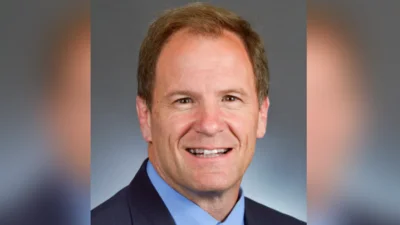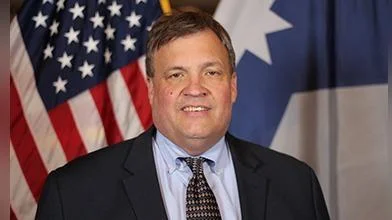The Congressional Record is a unique source of public documentation. It started in 1873, documenting nearly all the major and minor policies being discussed and debated.
“EXCELLENCE IN MENTAL HEALTH AND ADDICTION TREATMENT ACT OF 2021” mentioning Tina Smith was published in the Senate section on pages S4612-S4614 on June 17.
Of the 100 senators in 117th Congress, 24 percent were women, and 76 percent were men, according to the Biographical Directory of the United States Congress.
Senators' salaries are historically higher than the median US income.
The publication is reproduced in full below:
EXCELLENCE IN MENTAL HEALTH AND ADDICTION TREATMENT ACT OF 2021
Ms. STABENOW. Mr. President, I am here today and soon on the floor my good friend Senator Roy Blunt of Missouri will be here as well to talk about an issue that we both care very, very passionately about. In fact, on October 31, 2013, which I guess it is amazing how time flies, but in 2013, Senator Blunt and I stood here on the Senate floor together to mark a very important anniversary. It was 50 years to the day after President Kennedy signed into law the Community Mental Health Act--50 years to the day. And, tragically, it was the last piece of legislation he ever signed, and it was one of the most important.
The Community Mental Health Act was groundbreaking; its goal, to provide full funding for comprehensive mental health services in the community. How important. Unfortunately, that has yet to fully happen. Instead, behavioral health is funded primarily through grants that start and then the grant stops. You would never say to someone who is having a heart attack: We would love to help you, but we are so sorry the grant ran out. Can you come back in 6 months? And yet that is what we say to people with mental illness or a substance abuse disorder. Every day, multiple times a day, that is what people hear.
These people who need help aren't abstractions, they are our moms and dads and brothers and sisters and sons and daughters and friends and, in fact, us. I am so grateful to Members who have shared their own mental health stories; that includes my friend, Senator Tina Smith, who bravely shared her own struggle with depression that so, so many of us have had throughout our lives.
We know that with the right support, people who live with some kind of a mental health challenge can thrive. They do. I have often told the story of growing up in Clare, MI, a little rural town, where my dad had struggles and was misdiagnosed for years and finally, finally, finally, correctly diagnosed as being bipolar and getting the support and help with medication he needed, and he was able to thrive after that. And that is what I want to have for every person in Michigan, every family in Michigan, every family across the country.
Unfortunately, far too many people still struggle to get the support that they need. We certainly have seen that during the COVID-19 pandemic, and it has gotten much, much worse, unfortunately, with everything everybody has had to go through.
One CDC report found that last June, twice as many people as usual said they were experiencing symptoms of anxiety and depression--not surprising--and 11 percent of Americans have reported having serious thoughts of suicide in the past 30 days--in the past 30 days. And, tragically, 200 Americans are dying every day due to opioid overdoses, according to the CDC. And that is up 34 percent since the pandemic started--34 percent. Clearly, we need to do more to get people the mental health care and the substance abuse treatment that they need and that they deserve.
The good news is, we are well on our way to ensuring that healthcare above the neck will be treated like healthcare below the neck. This is an effort that Senator Blunt and I have now been working on since that day we came to the floor in 2013. We are well on the way to finally seeing President Kennedy's vision become a reality.
Not long ago, Senator Blunt and I, as I mentioned before, after that floor speech, introduced something called the Excellence in Mental Health Act. It was signed into law in 2014. It created certified community behavioral health clinics, which are funded just like federally qualified health centers. You have high standards, the clinic meets the standards, and then they get fully funded through the healthcare system.
It requires these clinics to provide a comprehensive set of services to everyone who walks through the door, including 24/7, 365 days a year crisis services, outpatient mental health and substance abuse treatment, and immediate screenings, risk assessments, and diagnosis. And just as important, it requires care coordination, including partnerships with emergency rooms and law enforcement and veterans organizations.
Ten States, including Missouri and Michigan, have been selected for full participation in the program. And startup grants have been extended now to a number of clinics across the country--40 States, plus the District of Columbia, 300 community clinics being funded to get things started so far, and we have more coming because of the American Rescue Plan. These clinics are already making a huge difference.
We just had a hearing in the Finance Committee this week from those speaking strongly about this model, this being the model for care in the community. Just as community health centers are the model of care for physical healthcare, certified community behavioral health clinics are now the model for mental health and addiction services.
More than half of these clinics provide same-day services. Now, that may not seem like much, but the truth of the matter is--and this has been true for years in Michigan because of lack of funding--they only are able to help people with the most severe problems. So if you want to walk in and connect with somebody and express a concern, you are probably not going to get any services--certainly, not that day--under the old system. Now, more than half of these clinics provide same-day services. Nearly all of them offer treatment within a week. Think about someone with a substance abuse issue, as well as a mental illness. Time is everything. And if someone is reaching out for help, they need to get that help right away.
Ninety-five percent of these clinics have been engaged in one or more innovative practices with law enforcement. It has actually been incredible to hear what is being done with local law enforcement. So when the police officers are called to the scene, and it is clearly an issue that may involve mental illness or substance abuse, they are able to immediately connect up with those who can provide those services instead of having to take somebody to jail when they shouldn't be in jail. And we know that many, many people in many cases around the country, the majority of people who are in the jail are people who actually need mental health help or substance abuse help. And so there is wonderful collaboration now through these clinics going on.
Statistics from the Department of Health and Human Services show that people who have received services at clinics--it is amazing numbers. I will just mention three: sixty-three percent fewer emergency rooms visits. I have heard from so many police officers talking about they are called to the scene, they take someone into custody who really just needs help, and then they go to the emergency rooms or other services, and the officer, then, sits there all day or longer with them or family members waiting, waiting, waiting because there are not the services that they need. So with the certified behavioral health centers, we have 63 percent fewer visits to emergency rooms for people who have a substance abuse problem or mental illness.
Sixty percent less time in jail. We are debating a lot these days about the role of law enforcement and more calls, as we definitely need, to have support services in the community. Through the work of certified community behavioral health clinics in the communities where they exist, there has been a 60-percent reduction in folks going to jail. Instead, they are getting the help they need.
And we have seen almost a 41-percent decrease in homelessness--
another major way that people end up on the street or in a shelter when what they need is help.
Currently, about 1.5 million people are accessing these services, and it is a start. We did it originally as a demonstration to show that this could actually work and make a significant difference and actually save community resources, in addiction to providing people the help that they need and deserve. But we need to do more, and that is why we are speaking today.
President Kennedy believed that these services should be available to everyone who needs them, and Senator Blunt and I agree. That is why this week we introduced our Excellence in Mental Health and Addiction Treatment Act of 2021. This legislation will expand these high-quality mental health and addiction treatment services across the country. This is the next step for States and communities across the country to be able to have the healthcare funding to provide high-quality services that we know work.
This is going to give every State the opportunity to create certified community behavioral health clinics in their communities. Just imagine what that could mean for a veteran who is living with post-traumatic stress or a young mom who recently had a baby and is struggling with postpartum depression or a college student who is working to overcome his substance use disorder, stay in school, and earn a degree but just needs some help and support to be able to make that happen.
Right now, only about 11 percent of people with substance use disorders get help in any given year. Think about that, 11 percent; about 11 percent of those struggling with an addiction are able to get help in any given year. Well, Senator Blunt and I aren't going to stop until 100 percent of people with substance abuse disorders and other mental illnesses are able to access the care that they need to thrive.
This is really an important moment because we, over the last several years, have designed working with various administrations now, designed quality standards. We have demonstrated that providing these services makes a difference. We have strong support from law enforcement. We have strong support from the healthcare community, from the mental health and substance abuse community in a broad way.
It is exciting to see this be something that really is bipartisan. I am so thrilled we have colleagues on both sides of the aisle who are supporting this effort signing on. We have more people signing on every day. That is because we believe in these clinics. We believe in the services and this way of providing services. We have seen it for ourselves, how it can change people's lives and give people the opportunity to be able to thrive.
When we introduced our original legislation, I spoke with Malkia Newman, whom I have known for many years. She lived for over 30 years with undiagnosed and untreated bipolar disorder. She finally got the treatment she needed through the community mental health system. And what she has done is truly amazing. We had Malkia come and speak as a witness for our healthcare subcommittee hearing in Finance that Senator Daines and I did a few weeks ago, and she was amazing.
Malkia is team supervisor for the CNS Healthcare Anti-Stigma Program in Waterford, MI. She is a peer educator. She is developing and leading programming in Michigan and sharing her expertise all across the country. She is an ordained minister, and she is a board member of the Oakland Community Health Network, where she has served several terms as board chair and vice chair.
Last month, when she testified at our Senate Finance Health Subcommittee hearing, she said: I am living proof. I am living proof. I am an advocate, and I am proud to speak on behalf of those who have not yet found their voice.
Malkia found her voice. It is time to make sure that everyone in our communities has the support they need to do the same.
I am looking forward to working with my friend Senator Blunt and all of our colleagues who have already signed on as original cosponsors, and we welcome everyone in this body to join us in moving forward legislation that we have demonstrated makes a difference--saving money, saving lives. It is now time to make these services available across the country.
I yield the floor.
The PRESIDING OFFICER (Ms. Cortez Masto). The Senator from Michigan.
Ms. STABENOW. I just wanted to let my friend Senator Blunt, whom I have been talking about now on the floor--I just wanted to say, with him here--and I knew he was going to be here shortly, but I just want to say again what a real pleasure and honor it has been to partner with my friend Senator Blunt in this really major movement to transform the way we fund community mental health and addiction services.
And our Presiding Officer has also been a leader in this. I want to thank her for that as well. But I just want to thank my partner, as I was indicating before we came down, on the 50th anniversary of President Kennedy's signing his last bill.
And I am pleased we have been able to pick up the torch, and we are going to get it over the finish line and make sure these wonderful services are available across the country.
Mr. BLUNT. Thank you. Madam President.
The PRESIDING OFFICER. The Senator from Missouri
____________________





 Alerts Sign-up
Alerts Sign-up